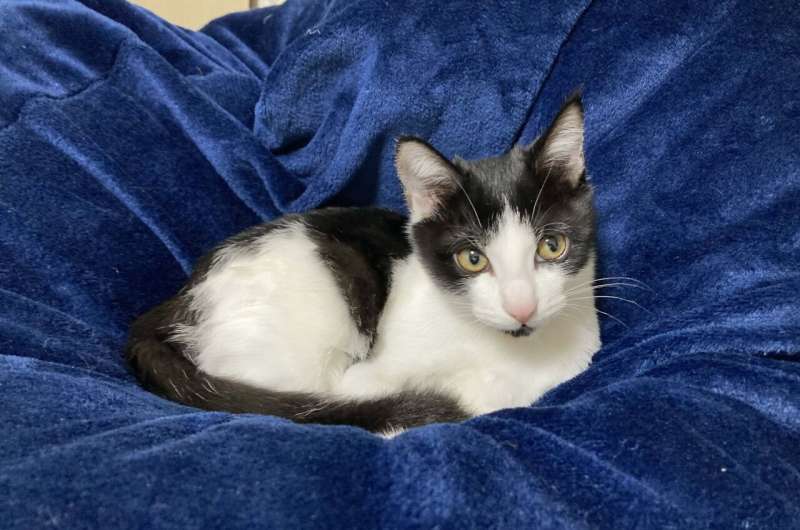This article has been reviewed according to Science X's editorial process and policies. Editors have highlighted the following attributes while ensuring the content's credibility:
fact-checked
trusted source
proofread
Feeder-free induced pluripotent stem cells show promise for chronic kidney disease therapies in cats

Amid advances in medicine to improve people's quality of life, an Osaka Metropolitan University-led team has, for the first time in the world, generated high-quality feline induced pluripotent stem cells (iPSCs), which have the potential to help companion animals and humans alike.
Human iPSCs have been generated using just four genes known as transcription factors, but feline iPSCs have been difficult to generate. Graduate School of Veterinary Science Professor Shingo Hatoya led the team in introducing six transcription factors via the Sendai virus vector to generate feline iPSCs from the cells of cats, including those derived from the uterus that were donated when cats were sterilized.
The team reports in Regenerative Therapy that these are the first high-quality feline iPSCs. They exhibit the properties that many iPS cells do, such as the formation of teratomas, which proves that they can differentiate into a variety of cells.
The stem cells generated also do not have a genetic footprint, meaning there is lower risk that they form tumors when implanted in another cat. Furthermore, they can be maintained without feeders, such as fibroblast from mice, making them safer as they do not mix cells from different species.
"Especially in cats, chronic kidney disease and diabetes are serious problems," Professor Hatoya said. "Establishing a method to have cells form a kidney or pancreas from feline iPSCs will be a challenge for future research."
Professor Hatoya, who previously reported on advancements in feeder-free canine iPSCs, added, "High-quality feline iPSCs made possible by this research are expected to be provided to researchers around the world for use in veterinary regenerative medicine research, understanding of the pathophysiology of genetic diseases, and development of new therapeutic agents."
More information: Kazuto Kimura et al, Generation of footprint-free, high-quality feline induced pluripotent stem cells using Sendai virus vector, Regenerative Therapy (2024). DOI: 10.1016/j.reth.2024.08.012
Provided by Osaka Metropolitan University


















